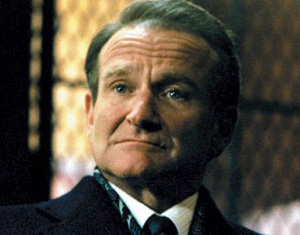Depression – A Coping Mechanism
 Depression – A Coping Mechanism
Depression – A Coping Mechanism
In the wake of Robin Williams successful but tragic suicide, the topic of depression has once again come to the fore.
Unfortunately, the coverage of the death of Lauren Bacall the very next day provided a diversion and an excuse to turn away from the topic of depression and the uncomfortable truth that 1 in 6, and in some places 1 in 5, people are on anti-depressants.
People who have severe clinical depression because of a real chemical imbalance in their brains need medication like this, of course, and thank God it’s available to them. It works wonders for that kind of thing.
However, the vast majority of those 1 in 5 being prescribed anti-depressants are surely not clinically depressed. If they are, then something very serious is happening to us en masse.
But, I don’t think that’s the case. People are just generally pissed off and don’t really know why, or don’t know what to do about it. But given our present approach to the treatment of depression, the 1 in 5 are numbed out with medication.
In the discussions I heard on UK radio and television these last few days, I have heard a lot about the effects of depression, one of which is suicide, but almost nothing about the cause. Just declaring it an illness, like it is something that just happens for no apparent reason is no help at all. There must be a cause.
Depression is not an emotion. It is a coping mechanism. It’s a way to avoid dealing with the emotional pain that is just under the surface, turned inwards and manifesting as feelings of unworthiness, self hatred and utter futility.
It has been my observation over the last 20 years working with basically well people in my practice, that this kind of depression is simply a mask. Underneath that depression is repressed rage, fear, resentment, shame and guilt – you name it. And most of it has its origins in unresolved childhood wounds.
Nine times out of ten, once you deal with those wounds and the repressed hurt and pain associated with them, the depression lifts. The need for the coping mechanism goes away.
A member of my own extended family had suffered serious bouts of depression. After some discussion we discovered his pain related not to the fact he was adopted but that his own birth mother had abandoned him. Deep down he felt he was not wanted and not worthy to be alive. I helped deal with that. He is now functioning extremely well, albeit with some medication at a relatively low dose.
I have had great success with this over the years using the Radical Forgiveness methodology. This has proven to be a very successful way of healing childhood wounds and restoring the person’s self-worth.
On the BBC today, a psychiatrist made the point that the earlier you can catch it, the better. I agree – but please not just with a pill that will only numb the pain again. If, instead, we give them a way to heal those wounds, their symptomology wouldn’t develop into full blown clinical depression that might then, at that point, need medication.
Colin C. Tipping's Blog
- Colin C. Tipping's profile
- 43 followers



